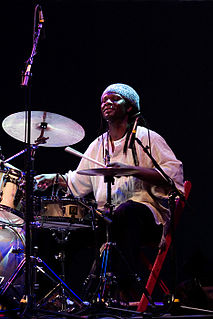A Quote by Bodhidharma
Not thinking about anything is zen. Once you know this, walking, standing, sitting, or lying down, everything you do is zen. To know that the mind is empty is to see the buddha.... Using the mind to reality is delusion. Not using the mind to look for reality is awareness. Freeing oneself from words is liberation.
Related Quotes
The practice of Zen mind is beginner's mind. The innocence of the first inquiry—what am I?—is needed throughout Zen practice. The mind of the beginner is empty, free of the habits of the expert, ready to accept, to doubt, and open to all the possibilities. It is the kind of mind which can see things as they are, which step by step and in a flash can realize the original nature of everything.
So the most difficult thing is always to keep your beginner's mind. There is no need to have a deep understanding of Zen. Even though you read much Zen literature, you must read each sentence with a fresh mind. You should not say, "I know what Zen is," or "I have attained enlightenment." This is also the real secret of the arts: always be a beginner. Be very very careful about this point. If you start to practice zazen, you will begin to appreciate your beginner's mind. It is the secret of Zen practice.
If you are thinking, you can't understand Zen. Anything that can be written in a book, anything that can be said - all this is thinking . . . but if you read with a mind that has cut off all thinking, then Zen books, sutras and Bibles are all the truth. So is the barking of a dog or the crowing of a rooster. All things are teaching you at every moment, and these sounds are even better teaching than Zen books.
Zen purposes to discipline the mind itself, to make it its own master, through an insight into its proper nature. This getting into the real nature of one's own mind or soul is the fundamental object of Zen Buddhism. Zen, therefore, is more than meditation and Dhyana in its ordinary sense. The discipline of Zen consists in opening the mental eye in order to look into the very reason of existence.
If you use your mind to study reality, you won't understand either your mind or reality. If you study reality without using your mind, you'll understand both. . . . The mind and the world are opposites, and vision arises where they meet. When your mind doesn't stir inside, the world doesn't arise outside. When the world and the mind are both transparent, this is true vision. And such understanding is true understanding.
With self-awareness you grow more intelligent. In awareness you learn, in self-awareness you learn about yourself. Of course, you can only learn what you are not. To know what you are, you must go beyond the mind. Awareness is the point at which the mind reaches out beyond itself into reality. In awareness you seek not what pleases, but what is true.
In Japan we have the phrase, "Shoshin," which means "beginner's mind." Our "original mind" includes everything within itself. It is always rich and sufficient within itself. This does not mean a closed mind, but actually an empty mind and a ready mind. If your mind is empty, it is always ready for anything. It is open to everything. In the beginner's mind there are many possibilities; in the expert's mind there are few.































